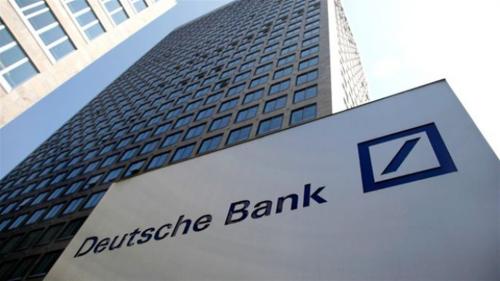The new logic of banks too big to fail (TBTF)
We are facing a financial apparatus with some institutions that can fail, and others that cannot and do as they please.
- Análisis

The bankruptcy of Lehman Brothers in 2008, highlighted the regulatory insufficiency of both the national financial system in the United States and in the international financial system. Ten years after the crisis, these deficiencies have not yet been corrected, making it easier for banks to make profits through fraudulent activities that are fined but not criminalized. (Table 1).
What motivates banks to operate by violating existing laws and regulations? Mainly the search for profits and compensation for the losses resulting from the 2008 crisis. This is the reason for internal controls to ignore this type of activity. The fines represent a lower amount compared to the sizeable profits obtained in operations outside the law. Basel III does not look into the cracks in the financial system that these investment operations of the Too Big To Fail Banks (TBTF) represent. We are facing a financial apparatus with some institutions that can fail, and others that cannot and do as they please. [1]
Illicit operations represent extraordinary profits for the TBTF, however this is not reflected in their share prices, in decline since the crisis of 2008 (Graph 1). Apparently, the TBTF act in a Mafioso way, in collaboration with their peers, where the business is not to grant loans but to carry out illegal activities together with peer banks in order to obtain extraordinary economic profits and then pay the fine.[2] (see table 1)
The role of Mafia capo of European banking is represented by Deutsche Bank (DB), which with 25 fines, continues accumulating violations (Table 2). In 2016 alone, the German bank paid US $ 7,200 million, after its fine was halved[3] when its former lawyer mas made chairman of the Securities and Exchange Commission (SEC) in the Trump administration. In addition, DB was recently associated with Cum-Ex tax fraud in Europe[4] and with money laundering together with Danske Bank[5], offenses for which the respective fine has not yet been applied and therefore, is not yet included in the Table. 2. There is no criminal accusation foreseen.
Al Capone was jailed for evading taxes and committing fraud, but no Deutsche Bank official has been criminally punished. They are limited in the United States to fines and in Europe, not even that. Now that his Wall Street lawyer was named chairman of the SEC, they earn even fewer fines.
The financial crisis of 2008 was the product of the creation of toxic securities operated internationally and backed by junk unpaid mortgages in the United States. However, impunity for this form of operation shows that there is no legal apparatus to punish them criminally, nor the political will. The crisis of 2008 was driven by decisions of the banks' management, and by the behaviour and lack of supervision that, with the win-win mantra, ignored the problems and abused the confidence of both depositors and investors.
Financial operators are known as "risk takers"; a term that includes from financial directors or members of the executive board, to any person that assumes "risks" on behalf of the institution. Your role in the company is compensated with a salary and an annual bonus. For example, in 2018, the CEO of Credit Suisse earned US $ 10.26 million[6], awarded although the bank recorded a 983 million Swiss francs loss, equivalent to US $ 1005, in 2017. For his part, Christian Sewing CEO of Deutsche Bank had a compensation of 2.9 million euros for 2017[7], although the bank paid a fine that year of almost US $ 7 billion and the price of its shares are flat. It is true that with the DB lawyer in the SEC, he managed to halve the US $ 14,000 million in 2017.
The question is whether this new way of operating, breaking the law and paying fines, is the new normal and if the too big to fail banks also know that they are too big for anything to happen to them in times when the State cannot intervene, as it should, without a doubt. Apparently, they are above the criminal code. Meanwhile, the banking share prices are a fraction of what they were in 2008, with no signs of recovery.
- Oscar Ugarteche, titular researcher at the Instituto de Investigaciones Económicas, UNAM SNI/CONACYT; coordinator of the OBELA project.
- Larry Vargas, benemerita, Universidad Autónoma de Puebla, OBELA project.
[1] Ugarteche, Arquitectura financiera internacional. Una genealogía (1850-2015), AKAL, Madrid, Mexico, Buenos Aires, capitulo 10.
[2] O. Ugarteche, J. Zaldivar (2016). Gran Banca=¿Crimen organizado?, Observatorio Económico Latinoamericano.
[3] https://www.eleconomista.com.mx/sectorfinanciero/Deutsche-Bank-alcanza-acuerdo-de-7200-mdd-con-justicia-de-EU-20161223-0035.html
[4] https://www.reuters.com/article/us-germany-dividendstripping-deutscheban/audits-reveal-deutsche-banks-links-to-tax-trade-scandal-idUSKCN1OY0Y3
Del mismo autor
- El multilateralismo bipolar 08/03/2022
- Bipolar multilateralism 07/03/2022
- What does 2022 bring? Uncertainty 31/01/2022
- ¿Qué trae el 2022? Incertidumbre 31/01/2022
- The most expensive Christmas of the century... (so far) 20/01/2022
- La navidad más cara del siglo (hasta ahora) 20/01/2022
- Lo que pasó en el 2021 10/01/2022
- What happened in 2021 10/01/2022
- Estados Unidos: el elefante en la habitación 08/11/2021
- The elephant in the room 07/11/2021








